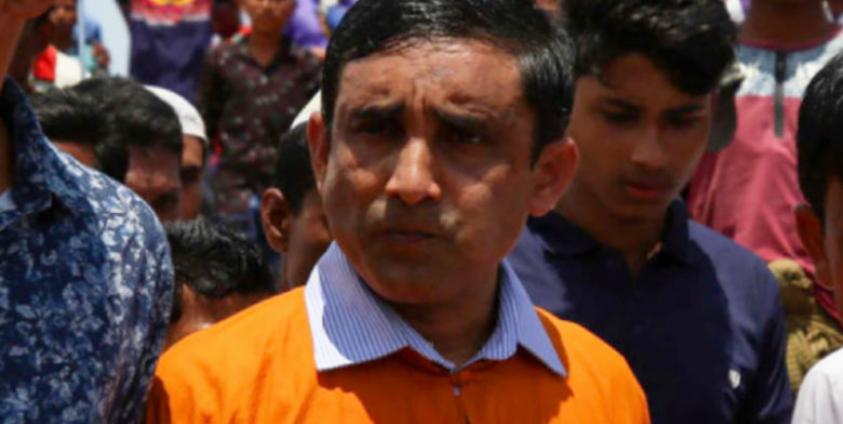Human rights advocates working on violations and abuses committed by the Burma military, support the calls for an investigation into the killing of prominent Rohingya leader, Mohibullah at the Kutupalong refugee camp, Cox’s Bazar, Bangladesh.
Naw Htoo Htoo, program director at the Karen Human Rights Group, voiced her concerns and explained to Karen News why the killing of Mohibullah has highlighted the lack of protection for human rights defenders.
“We support the call for investigation into the assassination of Mohibullah and at the same time call for justice brought to his case.”
Naw Htoo Htoo pointed out the current lawlessness sweeping Burma since the military coup has added to her concerns.
“We know it will take time because we don’t know which jurisdiction this will be reported as Burma legal system has broken down. We hope that as it happened in Bangladesh, its related authorities will collaborate to investigate his killing.”
Gunmen shot and killed Mohib Ullah, 46, the chair of the Arakan Rohingya Society for Peace and Human Rights (ARSPH) outside his office as he was talking to Rohingya leaders.
Mohib Ullah work involved documenting atrocities committed by the Burma Army and security forces against Rohingya people and it has been reported he had received a number of death threats for his advocacy.
Naw Htoo Htoo pointed out documenting and reporting on human rights violations was dangerous work.
“As a human right defender, you have many enemies. This killing of Mohibullah sent an alarming message to many activists working on the [Burma] borders – it said there is no security for us, we will always need to be aware and cautious as there is no specific legal protection laws for human right defenders in our country [Burma]. It is worse now with the current political situation, everything has broken down in terms of rule of law.”
Naw K’nyaw Paw, joint secretary, of the Karen Women’s Organisation agreed with Naw Htoo Htoo’s assessment and explained to Karen News the dangers are a daily constant.
“The killing of the prominent Rohingya human rights leader, Mohibullah, sends a stark message to activists and human rights defenders, that even refugee camps are not fully safe or in line with international standards and protections.” Naw K’nyaw Paw, said documenting the abuses of powerful institutions, businesses and individuals made human rights defenders and activists targets.
“We are targeted for doing our work and for the changes we advocate for. Human rights defenders must be granted the space to do so safely in any capacity and without being targets for violent retribution.”
Naw K’nyaw Paw called on the relevant authorities to “hold those who committed this crime accountable and justice must be brought to him and his family. We cannot let his murder disappear and let it risk setting an example where impunity is tolerated and permitted.”
Naw Htoo Htoo pointed out her organization had been documenting Burma’s military abuses of ethnic villagers and its disregard for humanitarian laws for decades.
“The military retaliations to villagers, when they suffered, are disastrous – burning down whole villages. Even before the military coup, as human right defenders, we always needed security measures in place to protect our staff.” Naw Htoo Htoo sa id the coup has added even more danger.
“After the coup, the military authorities with impunity began killing, making arbitrary arrests and committing other human rights abuses of people protesting the coup.”
Naw Htoo Htoo explained to Karen News how the military-appointed State Administration Council has increased its abuses against people protesting the coup.
“After the first two months of the coup, the Junta targeted National League for Democracy (NLD) members of parliament. Many NLD MPs were arrested – the next day family members were ordered to pick up their dead body. Adding to the distress the bodies showed signs they had been badly tortured.”
Naw Htoo Htoo said the military’s arrest of those now been targeted has widened.
“Their targets have moved towards other politicians and activists. Many of those who have been taken to interrogation centres end up being badly tortured, many to the point of death.”








